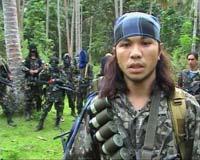Security situation triggers Canadian travel warnings

Canada has joined the U.S. and Britain to advise citizens not to travel parts of Mindanao and other areas of Southern Philippines due to kidnapping threats and high level of terrorist and insurgent activity.
The travel advisories were issued less than a week after Swiss-Filipino Carl Rieth, 72, was abducted by men believed to be members of the notorious Abu Sayyaf group in his beach resort in Zamboanga City.
The Canadian government also advised its citizens against traveling to the Zamboanga Peninsula, Zamboanga del Sur, Sarangani, Lanao del Norte, Davao del Sur (excluding urban areas of Davao City), South Cotabato, North Cotabato and Sultan Kudarat.
“Canadians living or visiting the region are advised to review their security situation and to take appropriate precautions, particularly when visiting places frequented by foreigners such as resorts. There is a serious threat of kidnapping against foreigners,” the advisory noted.
It said that aside from bombings and terrorist threats, Canadians should take extra precaution in areas such as Cotabato City, Maguindanao and Sultan Kudarat where a state of emergency remains in effect.
For its part, International Trade Canada reiterated threats of kidnapping in parts of the country.
“Although government action has reduced the frequency of kidnappings, there remain reports of planned kidnap-for-ransom of business people,” it said in its April 8 advisory.
“Kidnappings have occurred throughout the country, including in Manila and several resort areas, and deaths have resulted in some cases. Canadians should be cautious when traveling to and around coastal areas and island resorts,” it added.
In its advisory issued, the British Foreign and Commonwealth Office advised British citizens against all travel to southwest Mindanao and the Sulu archipelago “because of ongoing terrorist and insurgent activity.”
It also advised against all but essential travel to the remainder of Mindanao for the same reason.
“We advise against all travel to southwest Mindanao and the Sulu archipelago covering the following areas: Autonomous Region of Muslim Mindanao (ARMM), including the islands of Basilan, Sulu and Tawi-Tawi, plus the western provinces of Sarangani, North and South Cotabato, Sultan Kudarat, Lanao del Norte, Zamboanga del Sur and Zamboanga Sibugay,” the advisory said.
The advisory said that the terrorism threat in the Philippines remains high and could affect places frequented by expatriates and foreign travelers.
It also noted that foreigners remain under threat from kidnappers, citing the recent abduction of Swiss-Filipino businessman Carl Reith in Zamboanga City last April 4.
The advisory also added the recent European Commission ban on all air carriers certified in the Philippines starting April 1. It said the EU ban was imposed because Philippine regulators failed to verify if local carriers comply with international safety standards.
“We recommend that you avoid flying with Philippine-certified airlines subject to the EU operating ban, which came into effect from 1 April 2010,” it said.
The Filipino Post reported last week, that Philippine Airlines, which flies into Vancouver daily has been banned from the skies over Europe but will continue its operations in Canada.
Philippine Airlines (PAL), Asia’s oldest flag carrier, has a daily Manila to Vancouver to Las Vegas, back up to Vancouver and on to Manila operation.
It serves the growing Filipino-Canadian community and a huge influx of temporary foreign workers that seek jobs in Western Canada. Philippines is one of the largest source of foreign workers in Canada, after the U.S.
European Commission spokeswoman Helen Kearns said the new ban covers over 40 Philippine airlines and a dozen Sudanese ones.
The Philippine military has described as “unfortunate” these latest travel advisories issued by Canada and Britain on the country in light of the kidnapping of the Swiss-Filipino businessman in Mindanao.
“It is unfortunate on our part as this may affect our tourism industry. However we cannot blame the British and Canadian governments in wanting to ensure the safety of their citizens,” said Army spokesman Lt. Col. Ernesto Torres.
Torres assured that the military is in close coordination with the police and the local Crisis Management Committee “to ensure the safe rescue and recovery of the victim at the soonest possible time.”
“We want them [foreigners] assured that we are doing our best to improve the security situation in the country especially in the southern part,” he said.
The heightened travel alerts come as at least eight gunmen clad in police uniform raided a private resort and abducted 72-year-old Swiss-Filipino Carl Rieth in Zamboanga City on easter Sunday.
Rieth’s friend, German Karl Reichling, managed to fight off the raiders.
Rieth, whose father was Swiss and mother Filipina, was born and raised in Zamboanga City and owns a vast tract of land. Reichling is married to a Filipina and also lives in Zamboanga City.
In issuing the latest advisories, Britain noted that before this, Irish priest Michael Sinnott from Pagadian City in Zamboanga del Sur was abducted in October 2009.
Also, three workers of the International Committee of the Red Cross, including two foreigners, were kidnapped in Sulu in February 2009. They were eventually released.






